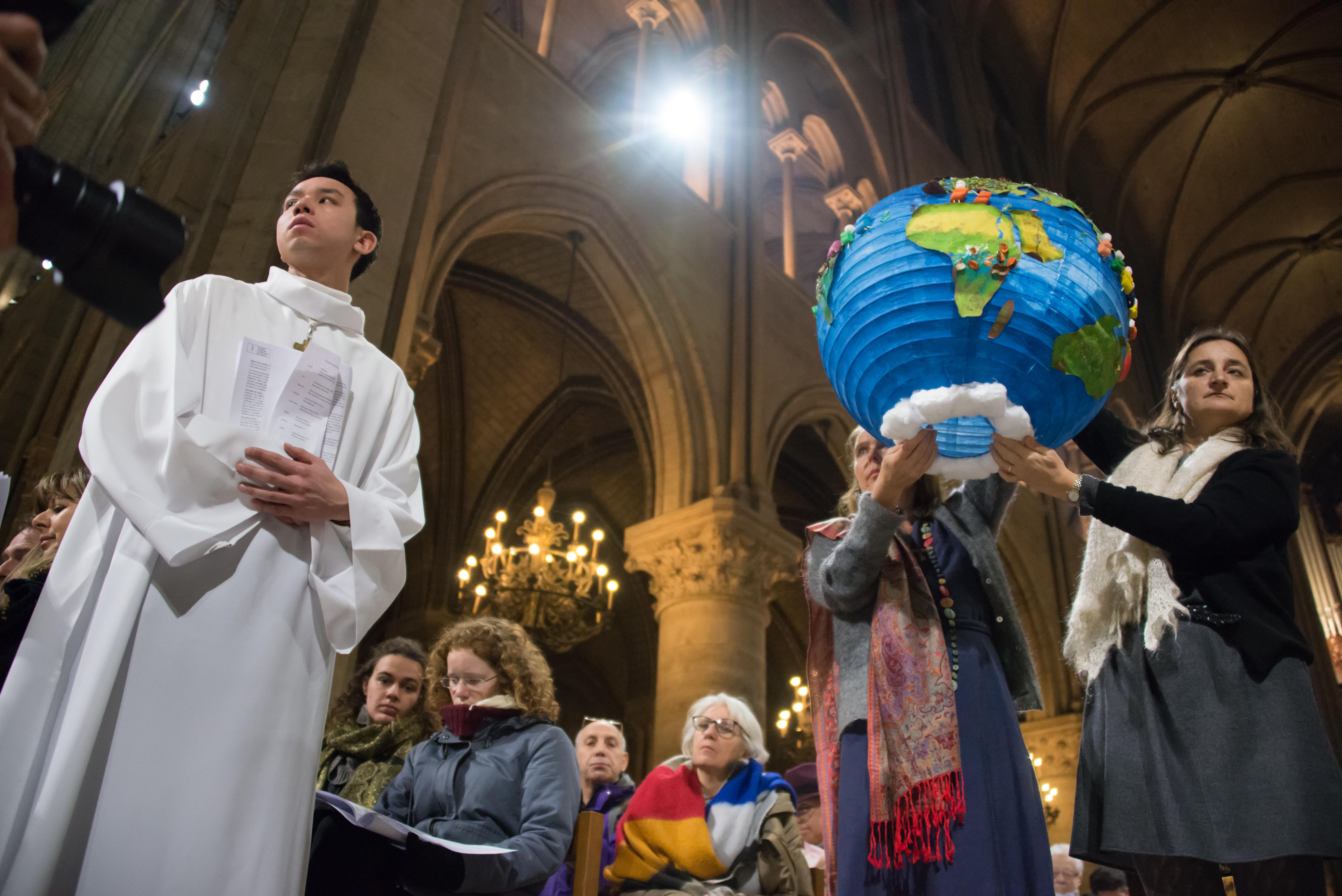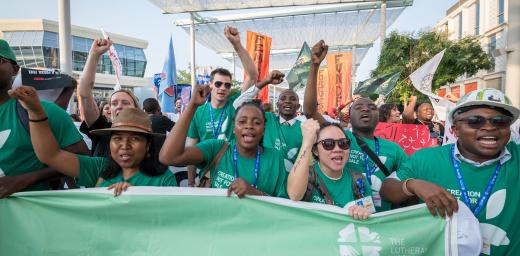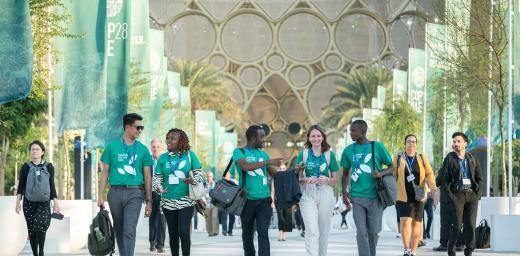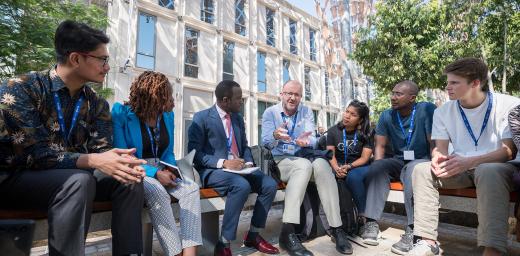Caring for creation – a bridge between church and society

Youth hold symbols of creation during an ecumenical celebration at the Cathredral of Notre Dame de Paris during the COP 21 climate talks taking place in nearby Le Bourget, 3 December 2015 Photo: LWF/Ryan Rodrick Beiler
LWF climate advocates learn about French church eco-justice initiatives
(LWI) - Seven young people from The Lutheran World Federation (LWF) regions who are monitoring United Nations climate change negotiations have come to in Paris with their own stories of environmental activism at home.
But they also came to France to hear stories from local churches caring for the creation by making the church “green” through practical, local initiatives, and by advocating for climate justice globally.
In Paris until 11 December for COP21, the United Nations climate change talks, the LWF delegates met French church leaders and activists.
At St Matthew Parish in Strasbourg, they heard how an audit of energy use by the —tracking its heating consumption and waste—helped the congregation make strategic plans to improve their building in order to maximize its energy efficiency.
David Rudloff, who helped lead the process, explained, “We know what we can do and we are working to make the first step and the second step and the third step.”
Involving the whole community
“It's so simple, it's not very extraordinary,” he said. “Explaining to the whole community that it's not only a financial improvement but a real step toward environmental improvement, we made the whole community think about how we are not alone and we have real power to change.”
The French climate activist said the church decided to celebrate creation by becoming a spiritual community that emphasized technical activity. The impetus comes from Rudloff’s deep personal faith and his principled commitment on ecology.
“For many years I was a little ashamed to speak about ecology when I was in church and to speak about my Christian faith with ecologists. I thought that they will reject me if I speak out. And so I had this wall, this barrier in my head,” he reflected.
Rudloff said he was surprised to be welcomed by the church and environmentalists.
“If I'm only an ecologist I hide something of myself and vice versa. And so I discovered that the church was more open to the ecology than I initially thought. So I think that the main enemy is our own fears,” he noted.
In the face of such fears, Christian Albecker, the president of the Union of Protestant Churches of Alsace and Lorraine, encouraged the delegates to embrace a vocation of hope amid their work on climate justice.
“We, as Christians, have a special responsibility to say that it's possible. Hope is not just a dream. It can come true. You have also many pessimistic voices that say it's too late,” said Albecker. “Christians have to bring the message that hope is always possible and action is possible.”
He wants to see more commitment like that demonstrated by churches involved in the Pilgrimage for Climate Justice where different groups from Germany and France walked together to Paris to call for climate justice at COP 21.
“This is my church”
“This was a very important experience for our church because we were surprised that so many people got involved,” said Albecker. “We estimate that about 1,500 participated in the march, which for a church like ours is quite a lot.”
“It was a spiritual experience and it was a physical experience,” said Albecker, who along with his colleagues from the church offices participated in one day’s 23-kilometer march. It was also a political experience.
They presented a common declaration signed by the Union of Protestant Churches of Alsace and Lorraine leader and several local Catholic bishops to a representative of the Council of Europe in Strasbourg. For him, the pilgrimage was one example of how to overcome barriers while making a unique faithful witness.
“The media covered the pilgrimage and Fast for the Climate very positively,” he noted. “The questions asked often were, ‘Why do churches get involved in this question of climate justice? This is a technical or political question. What are the churches doing?’”
Church leaders responded by saying that caring for creation is an essential question for Christians and other faith traditions. Such an answer provided a “bridge” between the church and the whole of society, Albecker argued.
Work on climate justice by religious activists can bring people back to the church. “We have a woman in one village who was very active on the environment who joined the church because she said it was the first time it had become involved on such an important question.
“‘This is my church,’ she concluded," Albecker said.
With 250,000 members, Union of Protestant Churches of Alsace and Lorraine is one of the three LWF member churches in France.
(By LWI correspondent LWI Ryan Rodrick Beiler)





